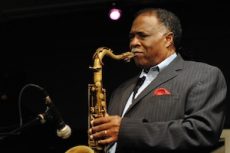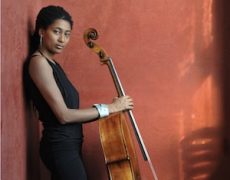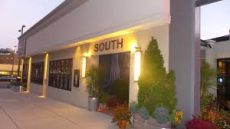
HOUSTON PERSON
He remains the King of the Boss Tenor Sax and nothing, it seems, can stop Houston Person, now in his sixth decade of performing. His latest recording (he’s released over 85 of them), as featured guest on Emmet Cohen’s Masters Series Vol. 5, has rocketed up the Jazz Week charts. In its 4-star review, AllAboutJazz.com applauds Houston’s “master’s flair for swing and blues.” A great friend of The Jazz Forum, Houston is a master’s master.
The tenor saxophonist and record producer. Although he has performed in the hard bop and swing genres, he is most experienced in and best known for his work in soul jazz. He received the “Eubie Blake Jazz Award” in 1982.
More Posts: adventure,cello,club,genius,jazz,music,preserving,saxophone,travel

TOMEKA REID
Described as a “New Jazz Power Source” by the New York Times, cellist extraordinaire Tomeka Reid presents her groundbreaking new work inspired by Duke Ellington. Be among the first to witness this Kennedy Center co-commission as Reid seamlessly captures the essence of Ellington, all while propelling jazz into bold new territories.
Described as a “New Jazz Power Source” by the New York Times, Tomeka Reid, a D.C. native, the 2022 MacArthur “Genius Grant” Fellow, and cellist extraordinaire, presents her groundbreaking new work inspired by Duke Ellington. Be among the first to witness this fusion of tradition and innovation as she seamlessly captures the essence of Ellington, all while propelling jazz into bold new territories. Lose yourself in the spirit of a genius reimagined through the lens of one of today’s most visionary artists.
More Posts: adventure,cello,concert,genius,jazz,music,preserving,travel

The Jazz Voyager
Hitting those friendly skies on British Airways back to the States is a fifteen hour fly time from Warsaw to Philly with a four hour layover at Heathrow, but it was fun seeing a new city, new venue and hearing Mr. Herring again up close and personal in a club setting. An old stomping ground, South Jazz Kitchen, is the destination that serves up elevated comfort food that combines America’s original music with Southern heritage cuisine.
Praised for its authentic, soulful, and orchestral sound, The String Queens (TSQ) is a dynamic group with violinist Kendall Isadore, Dawn Johnson on Viola, and cellist Élise Sharp. They create stimulating musical experiences that inspire diverse audiences to love, hope, feel, and imagine. This Jazz Voyager is anticipating the experience of a versatile repertoire and musical journey through time spanning from the Baroque era to the Jazz Age to today’s Billboard Hot 100 Chart.
Nestled in the Spring Garden neighborhood of the city, the venue is located at the intersection of Broad and Mt. Vernon, at 600 N. Broad Street, Philadelphia, PA 19130. For more info https://notoriousjazz.com/event/the-string-queens.
More Posts: adventure,cello,club,genius,jazz,music,preserving,travel,viola,violin

Daily Dose Of jazz…
David Darling was born March 4, 1941 in Elkhart, Indiana. Interested in music from an early age, he began piano when he was four, cello at ten, and string bass in high school. He studied classical cello at Indiana State University and after graduating remained there another four years as a teacher.
Working as a studio musician in Nashville, Tennessee he was a member of the Paul Winter Consort until 1978. During the following year Gus was part of the chamber jazz group Gallery with Ralph Towner and released his first solo album, Journal October. His performance and composition draw on a wide range of styles, including classical, jazz, Brazilian, African, and Indian music.
He has written and performed music for more than a dozen major motion pictures from 1988 to 2004 and recorded a collaboration with the Wulu Bunun, a group of Taiwanese aborigines. In 2007 he recorded The Darling Conversations, with Julie Weber discussing his music philosophy. He followed this in 2009 with the release of the Grammy-winning Prayer for Compassion.
In the Eighties he began his life as an educator of young children by joining Young Audiences, founded Music for People, which seeks to encourage self-expression through musical improvisation. He became part of a collaboration of music teachers and performers offering a training program in holistic and intercultural approaches to healing with sound and music at the New York Open Center Sound and Music School.
Cellist and composer David Darling died in his sleep on January 8, 2021.
More Posts: bandleader,cello,composer,history,instrumental,jazz,music

THE STRING QUEENS
Praised for its authentic, soulful, and orchestral sound, The String Queens (TSQ) is a dynamic group that creates stimulating musical experiences that inspire diverse audiences to love, hope, feel, and imagine! With an array of repertoire spanning from the Baroque era to the Jazz Age to today’s Billboard Hot 100 Chart, TSQ performs versatile programs that take listeners on a rousing musical journey through time and a multitude of musical genres.
More Posts: adventure,cello,club,genius,jazz,music,preserving,travel,viola,violin


